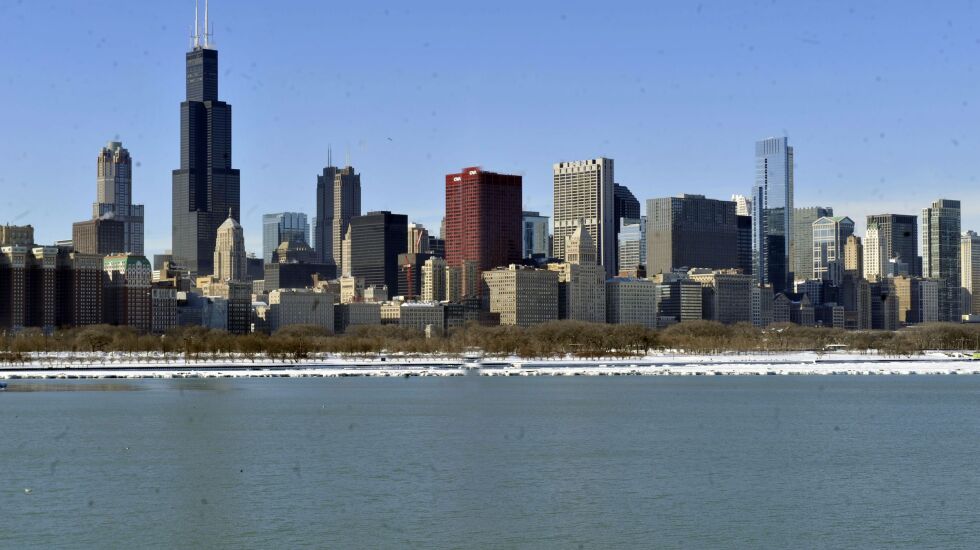
Hello, Chicago!
I’m pleased and proud to be joining the Sun-Times family as a contributing columnist, offering twice-monthly commentary on civil rights and urban issues, along with the prominent role Chicagoans have played and continue to play in the ongoing movement for racial justice.
As a child of the civil rights movement, through my tenure as president of the U.S. Conference of Mayors, to my two decades and counting at the helm of the nation’s largest civil rights and urban advocacy organization, my relationship with Chicago runs deep.
The first time I visited Chicago, we almost didn’t make it. It was 1963, and I was 5 years old. My father, Ernest “Dutch” Morial, a trail-blazing civil rights lawyer and politician, traveled to Chicago frequently from our home in New Orleans for various conventions and meetings. This was the first time my parents allowed me to tag along. But a car accident along the way almost derailed my first glimpse of the Windy City. None of us was hurt, but in order to make it to Chicago on time, my parents left the car behind and made my big adventure even more exciting with my first journey by train.
From that moment on, I jumped at every chance to accompany my father to Chicago to spend time with personal heroes of my young life such as Jesse Jackson, newly appointed to head up the Chicago branch of Operation Breadbasket, the economic empowerment arm of the Southern Christian Leadership Conference; or John H. Johnson, who was building Ebony magazine into one of the nation’s most influential publications.
Those trips with my father cemented my lifelong affinity for Chicago.
Along the way, I’ve had the privilege to work closely with the Chicago Urban League, one of the oldest, largest and most influential affiliates in our nationwide network. Under the dynamic leadership of Karen Freeman-Wilson — a fellow former mayor — since 2020, the Chicago Urban League continues to set the standard for strategic and effective advocacy, programming, and outreach in education, economic development, and social justice.
It was my own father’s career as Louisiana’s first Black state legislator and the first Black mayor of New Orleans that set me on the path to public service. But my perspective on politics, particularly the politics of Chicago, initially was shaped by the 1971 book “Boss,” Mike Royko’s riveting account of Richard J. Daley’s rise through the city’s Democratic machine to become a six-term mayor. I later would get to know his son, Richard M. Daley, who was well into his second term as Chicago mayor when I took office as mayor of New Orleans in 1994.
Even more of an influence, however, was Harold Washington, who upended that machine to win election as Chicago’s first Black mayor in 1983. I was a student at Georgetown University Law Center at the time, and eagerly spent my spring break working on Washington’s campaign. Like my father’s successful campaign for New Orleans mayor six years earlier, Washington employed what I later came to call the “gumbo principles.”
Gumbo represents the combined traditions of African, Native American, French and Spanish cultures. Each of its many ingredients adds to the flavor and magic the dish requires. As a mayor, creating gumbo is about building a coalition of unique ingredients or communities, each with unique skills, points of view, and flavors, each crucial in its own way.
As Chicago’s mayoral election approaches, I’m often asked for my advice from one mayor to another. (My first recommendation is to read my book, “The Gumbo Coalition: 10 Leadership Lessons That Help You Inspire, Unite, and Lead.”) The gumbo principles were key to my success in transforming New Orleans over my two terms.
A Marshall Plan
The next mayor of Chicago, whether it is incumbent Lori Lightfoot or one of her challengers, will need to assemble a “gumbo coalition” to address the challenges that lie ahead. The number one issue Chicagoans want the next mayor to address is crime and justice. And that means addressing disinvestment in the West Side and the South Side.
Chicago needs its very own Marshall Plan — a holistic strategy for revitalizing historically redlined neighborhoods to create economic opportunity and eliminate systemic inequities. The next mayor must assemble a gumbo coalition of business leaders, community-based financial services and advocacy organizations (like the Chicago Urban League).
With a population more than six times larger and with its often-brutal winters, Chicago may seem to have little in common with New Orleans. But they are alike in the most important way: the ethnic and cultural diversity that defines them is their greatest strength.
Marc H. Morial is president and CEO of the National Urban League. He served as mayor of New Orleans from 1994 to 2002 and is a graduate of the University of Pennsylvania and the Georgetown University Law Center.
The Sun-Times welcomes letters to the editor and op-eds. See our guidelines.
The views and opinions expressed by contributors are their own and do not necessarily reflect those of the Chicago Sun-Times or any of its affiliates.







